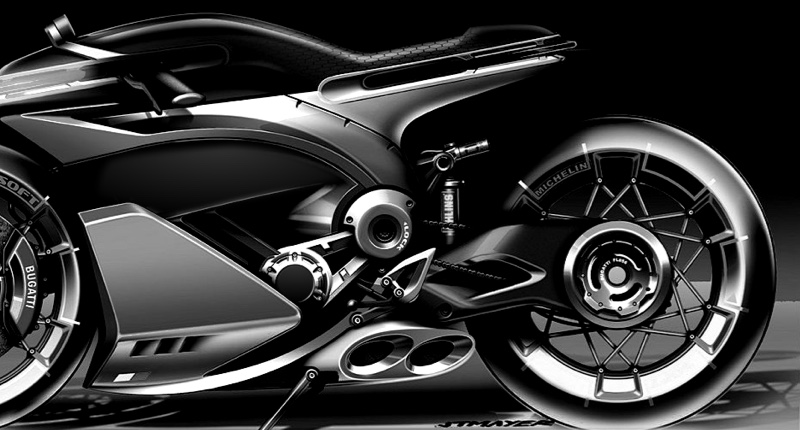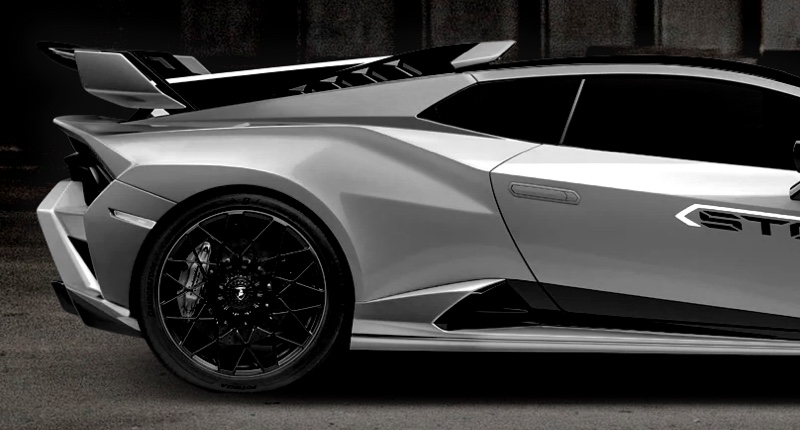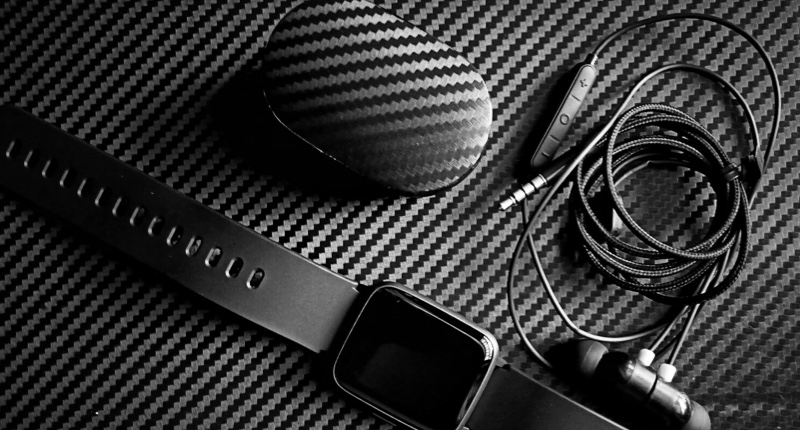Cost Guide: Custom Carbon Fiber Parts Pricing Explained
- Cost Guide: Custom Carbon Fiber Parts Pricing Explained
- Introduction — why pricing clarity matters for custom carbon fiber parts
- About Supreem Carbon — manufacturer background and capabilities
- analysis — what users want from Cost Guide: Custom Carbon Fiber Parts Pricing Explained
- Key cost drivers — the components that make up final pricing
- Manufacturing methods compared — cost, quality, and lead time
- Typical price ranges — real-world examples for buyers
- Tooling and prototyping — upfront costs and how to reduce them
- Materials and finishes — how these choices affect price
- Lead times and production planning — setting realistic expectations
- How to get accurate quotes — what information manufacturers need
- Ways to lower overall cost without compromising quality
- Conclusion — realistic expectations lead to better outcomes
- Frequently Asked Questions
- References and sources
Cost Guide: Custom Carbon Fiber Parts Pricing Explained
Introduction — why pricing clarity matters for custom carbon fiber parts
Custom carbon fiber parts are prized for their light weight, strength, and aesthetic appeal, but pricing can vary widely. This guide breaks down the real cost drivers — materials, tooling, labor, finishes, and logistics — and provides practical price ranges and timelines so buyers and specifiers can budget correctly and avoid surprises. Use this guide if you are ordering carbon parts for cars, motorcycles, luggage, or sports equipment.
About Supreem Carbon — manufacturer background and capabilities
Supreem Carbon, established in 2017, is a customized manufacturer of carbon fiber parts for automobiles and motorcycles, integrating R&D, design, production, and sales. The factory spans approximately 4,500 square meters, employs 45 skilled production and technical staff, and delivers an annual output value of around 4 million dollars. Supreem Carbon offers over 1,000 product types, including more than 500 customized carbon fiber parts, and specializes in carbon fiber accessories, luggage, and sports equipment manufacturing.
analysis — what users want from Cost Guide: Custom Carbon Fiber Parts Pricing Explained
People searching this keyword are typically prospective buyers, shop owners, or engineers who need: realistic price expectations, factors that influence cost, manufacturing method tradeoffs, and tips to lower cost without compromising quality. This article addresses those needs with concrete examples, cost ranges, and buying guidance for automotive and motorcycle applications.
Key cost drivers — the components that make up final pricing
Understanding the main factors will help explain price variation. The primary cost drivers are:
- Materials: type of carbon fiber (prepreg vs dry woven), resin system, core materials
- Tooling and molds: prototype molds vs production molds, complexity
- Manufacturing method: autoclave/prepreg, vacuum bagging, compression molding
- Labor and cycle time: manual layup vs automated processes
- Finishing and post-processing: sanding, clear-coat, paint, inspection
- Design and engineering: CAD, prototyping, iterations
- MOQ and production volume: one-off prototypes cost more per part than batches
- Logistics and tariffs: shipping, import duties, and insurance
Manufacturing methods compared — cost, quality, and lead time
Below is a concise comparison of common manufacturing methods used for custom carbon parts.
| Method | Typical mold/tool cost | Per-part cost (small to large) | Lead time | Quality/strength |
|---|---|---|---|---|
| Prepreg + autoclave | $2,000 - $20,000 | $300 - $4,000+ | 4 - 12+ weeks | Highest (consistent, high fiber fraction) |
| Wet layup + vacuum bag | $200 - $5,000 | $80 - $1,500 | 2 - 8 weeks | Good for low-volume; more variability |
| Compression molding / RTM | $5,000 - $50,000 | $50 - $1,000 | 6 - 16 weeks | Excellent for repeatability at scale |
Typical price ranges — real-world examples for buyers
Below are approximate retail or OEM-style price ranges. Actual quotes depend on spec, finish, and order size.
| Part type | Typical price range (USD) | Notes |
|---|---|---|
| Small interior trim pieces (vents, bezels) | $80 - $500 | Lower tooling; hand-layup or prepreg options |
| Exterior mirror caps | $120 - $600 | Often made in small batches; finish matters |
| Motorcycle fairings | $300 - $1,500 | Complex shapes, often wet layup or prepreg |
| Fenders and side skirts | $400 - $2,000 | Shape complexity and finish drive cost |
| Hood (carbon fiber for cars) | $1,000 - $4,000+ | Prepreg/autoclave hoods tend to be at higher end |
| Full-body kits | $5,000 - $15,000+ | Includes many panels and higher mold costs |
| Custom luggage and sports equipment | $150 - $2,000+ | Depends on inserts, hardware, and tooling |
Tooling and prototyping — upfront costs and how to reduce them
Tooling is often the single largest upfront expense. Simple prototype molds can be made from polyurethane or fiberglass for $200 to $2,000. Production-grade molds for consistent parts may run $2,000 to $30,000 depending on size and complexity. To reduce costs consider:
- Ordering multiple parts in one mold where possible
- Using a soft mold for low-volume runs
- Refining the design before committing to expensive steel or aluminum tooling
- Pooling demand with fleet or club orders to increase quantity
Materials and finishes — how these choices affect price
The choice of carbon fiber and finish affects both aesthetics and cost. Key choices include:
- Prepreg carbon fiber: higher material cost but more consistent mechanical properties
- Dry woven fabric + wet resin: lower material cost, more manual labor
- Twill vs plain weave: twill is often chosen for looks and may cost slightly more
- Clear-coat and polishing: a high-gloss finish increases labor and inspection time
- Visible weave vs painted finish: painted parts conceal the weave but add paint labor and materials
Lead times and production planning — setting realistic expectations
Typical lead times vary by stage:
- Design and prototyping: 2 to 8 weeks
- Tooling build: 1 to 6+ weeks depending on complexity
- Production run: 2 to 12 weeks depending on volume and method
Rush orders are possible but often carry High Quality charges. Plan for contingencies, especially for complex exterior components that require multiple fitment checks.
How to get accurate quotes — what information manufacturers need
To receive precise pricing from a supplier like Supreem Carbon, provide:
- Accurate part drawings or CAD files
- Desired material and finish (prepreg, wet layup, visible weave, painted)
- Target production volume and delivery timeline
- Any mechanical requirements (impact resistance, stiffness)
- Fitment samples or reference parts if available
Ways to lower overall cost without compromising quality
Cost-saving strategies include consolidating parts, selecting hybrid constructions (carbon skins over foam cores), choosing durable but lower-cost resin systems for non-structural parts, and increasing batch sizes. Early collaboration with the manufacturer during the design stage reduces iterations and tooling rework.
Conclusion — realistic expectations lead to better outcomes
Custom carbon fiber parts pricing depends on multiple, predictable factors: material choice, tooling, manufacturing method, labor, finishing, and order volume. By understanding these drivers and providing clear specifications to your manufacturer, you can obtain accurate quotes and identify tradeoffs between price, lead time, and performance. Suppliers like Supreem Carbon are structured to support R&D, prototyping, and production so buyers get transparent pricing and consistent quality.
Frequently Asked Questions
Q: How much does a mold cost for a single exterior panel?A: Simple prototype molds typically range from $200 to $2,000. Production-grade molds for higher volumes or very complex panels can cost $2,000 to $20,000 or more depending on material and finish.Q: Is prepreg always better than wet layup?A: Prepreg delivers higher fiber volume and consistent mechanical properties but at higher material and processing cost (autoclave). Wet layup can be more economical for low-volume parts but may have more variability.Q: Can I paint a carbon fiber part to save money?A: Yes, painting can hide the weave and allow use of lower-cost materials or finishes, but painting adds labor and cost. Visible-weave clear-coat parts typically cost more due to additional finishing work.Q: What is the typical lead time for a custom carbon hood?A: Expect 6 to 12 weeks including tooling, prototyping, and production for a custom hood. Faster timelines are possible for simple designs or if existing tooling is used.Q: Do custom carbon parts require special shipping or import duties?A: Shipping of finished carbon parts requires careful packaging to prevent damage; shipping costs scale with size. Import duties depend on origin and destination countries; verify HS codes and tariff schedules.Q: How can I verify the quality of parts before full production?A: Request prototypes, perform fitment tests, and define inspection criteria. Suppliers often provide sample parts and will perform dimensional and cosmetic inspections prior to full runs.Q: What minimum order quantities should I expect?A: MOQ varies by shop and method. Low-volume workshops accept single prototypes but will price per-part higher; production shops often require batches to amortize tooling costs.Q: Are there certifications I should ask for?A: For critical structural parts, ask for material certificates, process records, and if applicable, compliance with automotive standards or third-party testing results.
References and sources
- MarketsandMarkets and Grand View Research market reports on the carbon fiber industry
- CompositesWorld articles on manufacturing methods and prepreg vs wet layup
- Technical datasheets and guidance from major fiber suppliers such as Toray and Hexcel
- Industry guidance from SAE International and relevant automotive composites publications
- Practical workshop cost estimates from experienced composite fabricators and OEM suppliers
Custom carbon fiber custom car parts Manufacturers and suppliers
Top china carbon fiber parts for motorcycles Manufacturers and Suppliers
Custom body kit carbon fiber Manufacturers and suppliers
Custom carbon fiber helmet motorcycle Manufacturers and suppliers
For After-sales Service
Do you offer a warranty?
Six month standard warranty on all products. Damage due to installation error or natural elements will not be covered.
For Order Delivery
How to choose the mode of transportation?
We use official shipment like Fedex,UPS,DHL and so on. Also customer can arrange delivery by themselves.
For Facotry
Supreem carbon main competitive advantages.
Rich experience
Over 10 years production experience in carbon fiber industry, providing customers with high quality carbon products.
Excellent service
From new project development to customer finished product delivery, we provide customers with full tracking and timely feedback on project progress.
High-Quality Products
Our carbon fiber products undergo rigorous quality control to ensure customers achieve the high quality and cost-effective product.
For Products
Are you parts have UV protected?
Absolutely! We use multiple layers of premium quality automotive clear (or matt) coats on our products, which ensure that they will remain super pretty for years to come.
For Customized Service
What can be customized in addition to customized carbon fiber parts?
You can customize your company logo, packaging, even the color of coating and so on.

Yamaha R1 Carbon Fiber Side Fairings
Introducing the Supreem Carbon Fiber Long Side Panels for Yamaha R1. Crafted with precision and expertise, this front side fairing is designed to elevate the performance and aesthetics of your R1. Made from high-quality carbon fiber, this fairing is not only lightweight but also incredibly durable, providing optimal protection for your motorcycle.

Yamaha R1 Carbon Fiber Airbox Tank Cover
The Supreem Carbon Yamaha R1 Carbon Fiber Airbox Tank Cover provides lightweight, durable protection with a sleek finish. Designed for R1 models, it enhances the style and performance of your bike. Its lightweight structure improves performance while maintaining the premium aesthetics necessary for high-end modification projects. As a dedicated manufacturer of carbon fiber parts, we provide stable production capacity, customization options, and strict quality control to support enterprise-level procurement and OEM/ODM needs.

Carbon Fiber Rear Seat Panel for BMW S1000R & M1000RR – Lightweight Performance
This carbon fiber rear seat panel is engineered for the BMW S1000R and M1000RR, offering superior rigidity, reduced weight, and a premium racing finish. Produced with autoclave technology and strict QC standards, the part ensures consistent OEM-level fitment. Supreem Carbon provides wholesale supply, stable bulk production, and customized solutions for global clients.

High-Performance Carbon Fiber Rear Undertail for BMW S1000R
Engineered for distributors, tuning brands, and motorcycle accessory businesses, the BMW S1000R Carbon Fiber Rear Undertail is a high-quality, durable, lightweight carbon fiber upgrade for the S1000R platform. This component is manufactured using aerospace-grade carbon fiber and precision molds to deliver superior stiffness, a seamless OEM-level fit, and a premium visual finish suitable for high-end aftermarket applications.
© 2024 Supreem Carbon All Rights Reserved.





Facebook
Pinterest
LinkedIn
Instagram